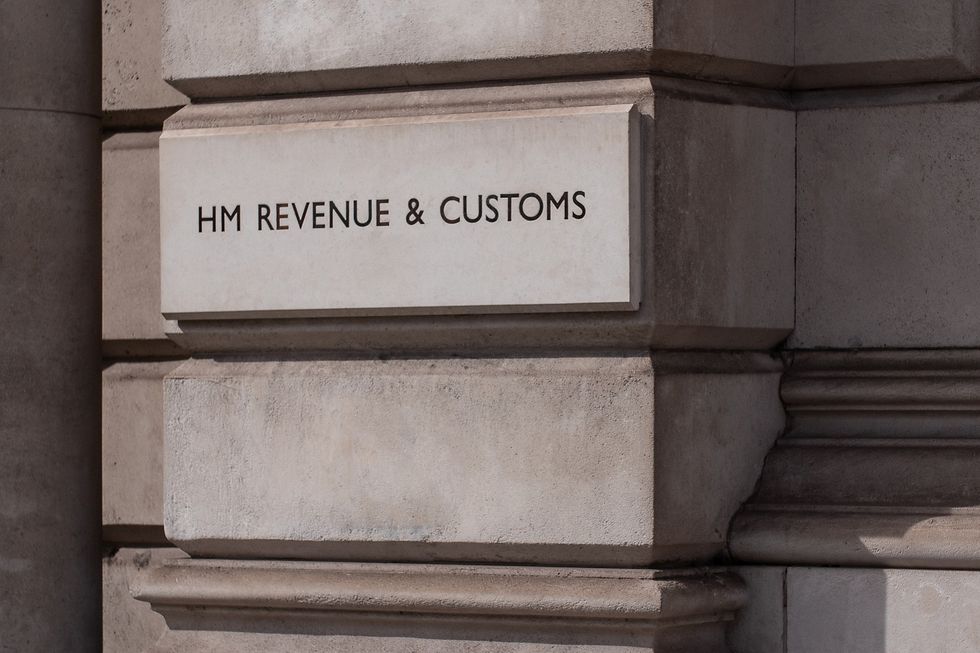'Lesser-known ways to save on tax' as Keir Starmer hints at tax hikes in upcoming Budget

July's higher than expected Government spending figures have fueled speculation of tax rises
|GETTY

July's higher-than-expected Government spending figures have fueled speculation of tax rises to plug the £22billion 'black hole in public finances'
Don't Miss
Most Read
Britons are urged to consider these lesser-known ways to save on tax ahead of the October Budget as the Prime Minister warns "painful" times lie ahead.
The Autumn Budget will be held on October 30, with many speculating there will be tax rises across the board.
The Labour election manifesto ruled out raising the rates of income tax, national insurance or VAT, but other personal taxes may be targeted.
Sir Keir Starmer warned that the Government’s forthcoming Budget will be “painful” as he asked the country to “accept short-term pain for long-term good”.
Hinting at possible rises for higher earners, he said: “There is a Budget coming in October, and it’s going to be painful. We have no other choice, given the situation that we’re in.
“Those with the broadest shoulders should bear the heavier burden ... those who made the mess should have to do their bit to clean it up.”

Government spending hit £3.1billion last month
| GETTYWith Government borrowing sitting at £3.1billion last month, Rachel Reeves is believed to be exploring how to raise more from inheritance tax and capital gains tax as well as getting tough on benefits.
An expert has warned that ”now is the time to evaluate and take steps to bolster your tax position”.
Britons are urged to make the most of the allowances available to them, as well as maximise tax efficiency with little-known tax breaks.
Myron Jobson, senior personal finance analyst at interactive investor said: ”It is becoming increasingly clear that a bitter cocktail of tax rises and public spending cuts will be the order of the day at the next fiscal event in October to get the nation’s finances back on an even keel.
”With tax rises seemingly on the horizon, effective tax planning has never been more crucial. Now is the time to evaluate and take steps to bolster your tax position and make the most of the allowances available to you.
“Maximising tax efficiency isn't just about the obvious strategies—taking advantage of lesser-known methods can make a significant difference, and exploring all available options is key to keeping more of your hard-earned money.”
Using losses to reduce your gain
Britons might be able to reduce their capital gains tax (CGT) liability by offsetting losses against gains.
This reduces the overall taxable gain. For example, if someone had £10,000 in gains and £3,000 in losses, they would only need to pay tax on £7,000 of gains.
Individuals can report their capital gains and losses to HMRC via a self-assessment tax return if their total gains (before applying losses) exceed the annual exempt amount.
People do not have to report losses straight away - they can claim up to four years after the end of the tax year that they disposed of the asset.
Gift Aid donations
When people donate to charity, Gift Aid lets the charity reclaim 25p on every £1 donated, and higher-rate taxpayers can claim back the difference between the basic and higher rate of tax.
All Britons need to do is fill out a Gift Aid declaration when making their donation. Higher-rate taxpayers can then claim the additional relief through self-assessment or by contacting HMRC.
ISAs
ISAs are a go-to for tax-free saving or investing. People can save or invest up to £20,000 each year without paying any tax on the interest, dividends, or capital gains.
To claim, savers should open an ISA through their bank or an investment provider like interactive investor. The tax advantages are automatic, so their returns remain untouched by the taxman.
LATEST DEVELOPMENTS:
Salary sacrifice schemes
By giving up part of one's salary in exchange for benefits like increased workplace pension contributions or cycle to work scheme, Britons can lower their taxable income and their tax bill. All they need to do is speak to their employer about setting up a salary sacrifice scheme. Their payroll department will handle the adjustments to the salary and tax.
Trading Allowance
Individuals to earn up to £1,000 per tax year from property or trading income without needing to declare it to HMRC or pay tax on it. It is designed to simplify the tax obligations for individuals with small amounts of trading or miscellaneous income.
Those making under £1,000 do not need to declare this income to HMRC, and no tax is due.
If the income exceeds £1,000, they're required to register for self-assessment. They can either deduct the allowance from their total income to arrive at the taxable amount or calculate their profits in the usual way (income minus allowable expenses) and pay tax on the lower amount.










